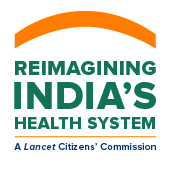In Conversation: Megha Rao, Senior Research Associate, Centre for Public Policy, IIM Bangalore
February 14, 2023

I am an economist by training with an MSc from the University of Warwick. I have more than five years of work experience, primarily focusing on health system governance and financing for efficient and effective healthcare delivery. My research interest lies in impact and economic evaluation of health policies in low and middle income countries. Specifically, I have worked a lot on understanding the role of public policy reforms in improving population health. As a Research Associate with the Centre for Public Policy, I examined the role of decentralized governance in strengthening the public health system and service delivery equitably at the local level in India. My research highlighted the issue of sub-optimal local institutional capacity within primary healthcare.
I am a Commission Fellow with the Citizens’ Engagement workstream of the Lancet Citizens’ Commission. I am currently part of the Understanding Paths to Universal Health Coverage (UHC) in India: A District-level Study led by Dr Arnab Mukherji and Dr Sapna Desai that seeks to examine the gaps, priorities and solutions to identify feasible pathways towards UHC. I work closely with a multidisciplinary team of experts to design and implement a unique mixed-methods framework for district-level health system assessment. My role here has been to develop and operationalize a district-level UHC measurement index to select the best and worst-performing districts across India for further stakeholder engagement. This project has been pivotal in helping me understand the dynamics of health systems and the stakeholders within those systems.
There are multiple challenges that need to be addressed for achieving UHC in India. Progressive realization of UHC requires, i) citizen-centricity, ii) ensuring cost-effectiveness and greater efficiency in the use of public finances for health care, iii) building health systems’ capacity across states to articulate the distinctive roles and responsibilities of the center, state, and local governments in delivering and regulating health care, iv) fostering new technologies for last-mile delivery and continuum of care, v) extending coverage to the informal sector, vi) tighter partnership between the private and public sectors, and vii) strengthening legal and regulatory framework that empowers frontline providers and protects patient rights, among others. Moreover, given the significant role social determinants of health play in influencing population health, efforts should be made for multi-stakeholder engagement in designing and delivering an inclusive and pluralistic UHC-driven healthcare system. Most importantly, UHC needs a high level of political will to put health at the forefront of development.
The most novel contribution of this Commission is to go beyond the traditional convention and actively engage stakeholders whose voices have rarely been heard in past discourse, i.e., those who utilize, deliver, and shape the health system. Moreover, the COVID-19 pandemic has shown us that, right now, more than ever, it is important to renew people’s trust in the health system. I hope that through this Commission, the country can move towards a more holistic and proactive health system with active engagement of, and accountability to, the citizenry. I also hope this Commission generates demand-responsive and actionable evidence to guide policymakers facing the next generation of UHC reform challenges.
